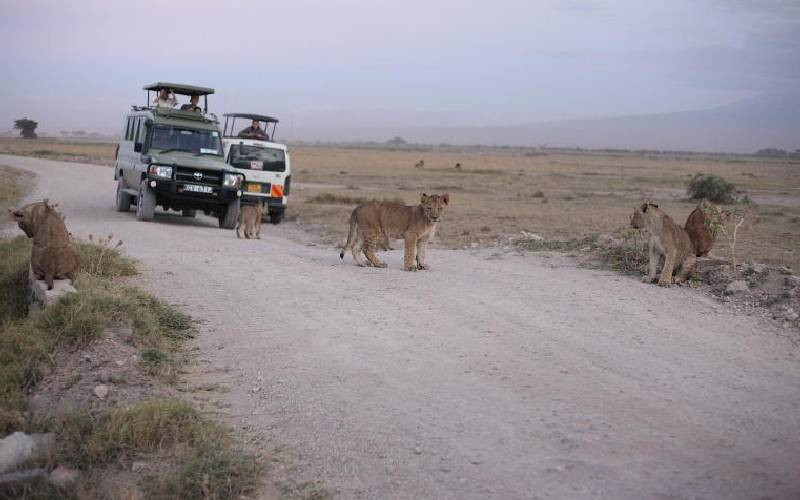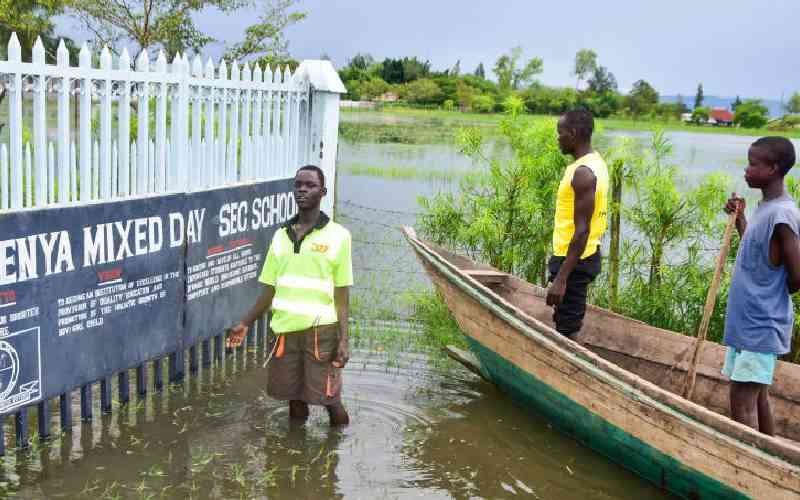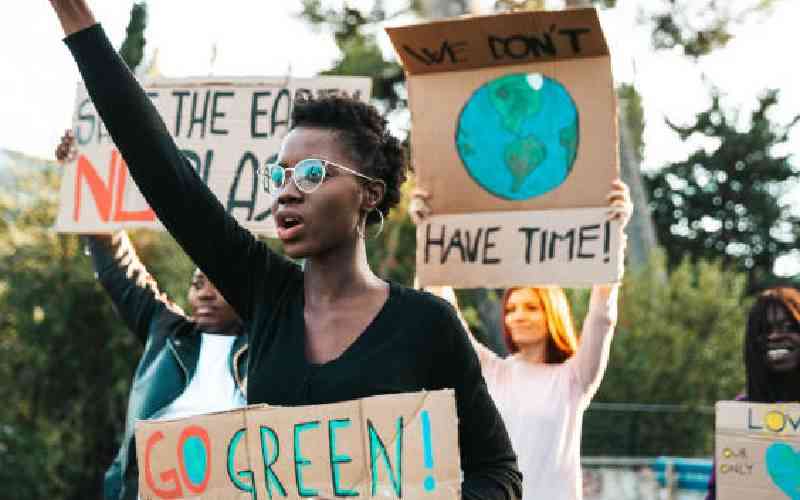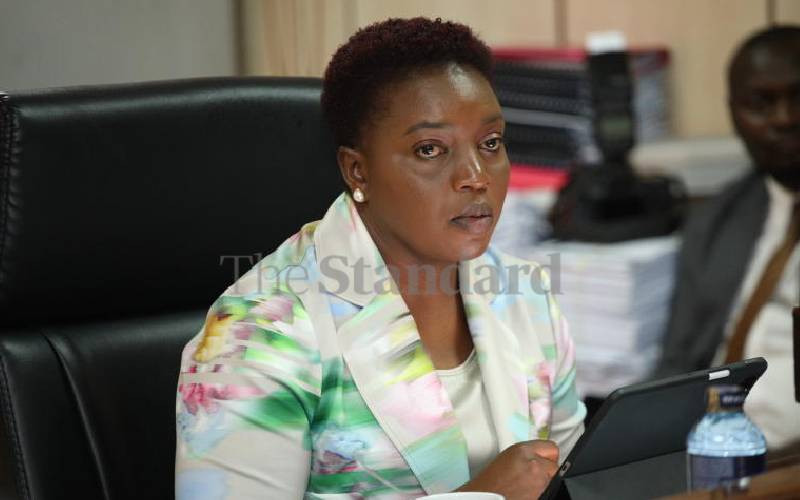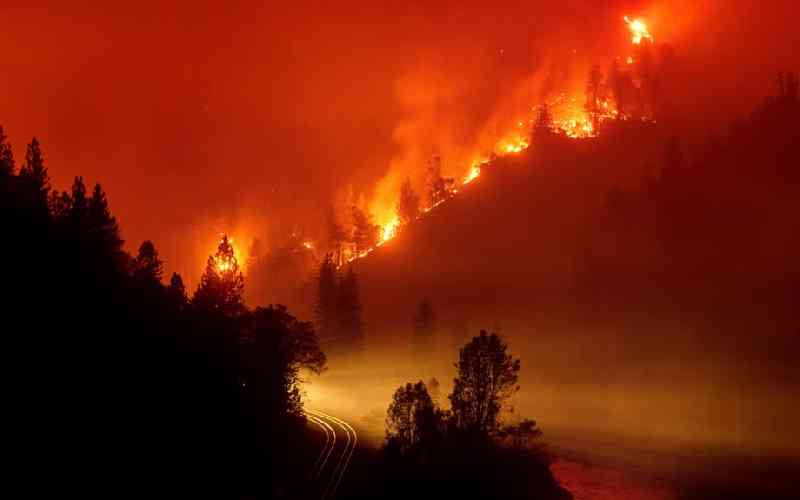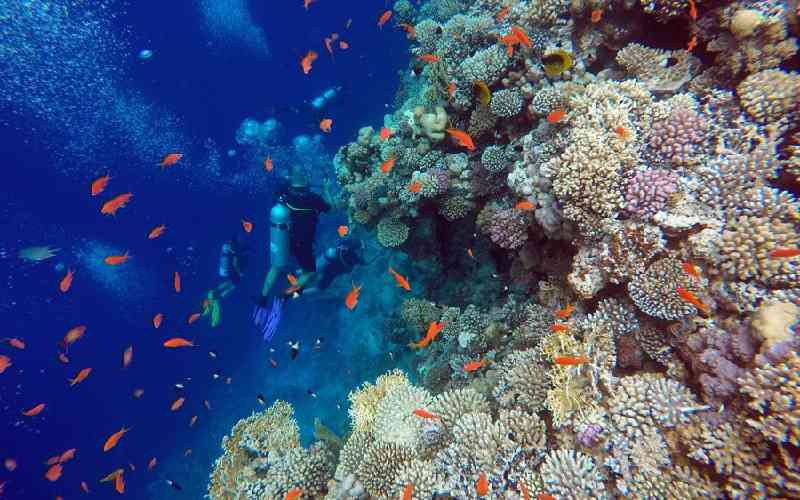
Climate optimism is a vanishingly rare state of mind. The reasons for that are obvious for any discerning news consumer or avid reader. Climate scientists are constantly cautioning us that the fate of the world hangs by a thread due to man-made global warming.
News headlines, meanwhile, warn of a "climate breakdown" and an "era of global boiling". And the title of the latest best-seller on the future of our rapidly warming planet? "The Heat Will Kill You First". Yikes! As necessary as it may be to communicate the urgency of the climate crisis, the tendency towards self-flagellation isn't always helpful.
With this backdrop, the inaugural Africa Climate Summit (ACS) which took place at the heart of Nairobi this week, offered a much-needed glimmer of hope that the continent can reinvent itself as a clean energy superpower and help chart a green and sustainable path forward for the rest of the world.
Hosted by Kenya and the African Union Commission, the first-ever summit of its kind brought together several heads of state and government, diplomats, civil society organizations, United Nations agencies, youth and women's groups, indigenous peoples, and climate experts from all over. It was a who's who of the climate-conscious.
President William Ruto, who has made the climate issue a key pillar of his administration's agenda, basked in the afterglow of the summit.
"During this action-focused summit, various stakeholders, including governments, the private sector, multilateral banks and philanthropists, have made substantial commitments totalling a remarkable $23 billion for green growth, mitigation and adaptation efforts across Africa," said the President.
Crucially, African leaders united in a powerful declaration, highlighting their determination to tackle pressing issues. They underscored the urgency of reducing emissions and achieving Paris Agreement targets, called for the promised $100 billion in annual climate finance, and emphasized transitioning away from fossil fuels.
- Reproductive health taking a hit as climate crisis deepens
- Africa needs effective and actionable plan to tell our climate story
- The vital role of media in the fight against climate change
- Link between climate change and child marriages is often overlooked
Keep Reading
The summit's outcomes emphasized green growth, renewable energy, and the preservation of vital natural resources. It demonstrated Africa's readiness to lead in climate action, fostering optimism for a sustainable and resilient future on the continent and beyond.
The summit also witnessed the participation of several global players, among them the US Special Presidential Envoy for Climate John Kerry, Ursula von der Leyen, President of the European Commission, and Antonio Guterres, Secretary-General of the United Nations.
The leaders lauded President Ruto's move to pass the Climate Change (Amendment) Bill which underscores Kenya's commitment to addressing climate change. UN Secretary-General Guterres called on large emitters, responsible for 80% of emissions, to assume their responsibilities in the global climate effort.
"Here from a low emitting continent, Africa, I make a very strong appeal to the large emitters, the G20 countries responsible for 80% of the emissions to assume responsibility," he said.
As an attendee, given the sheer number of delegates involved (30,000 according to Soipan Tuya, the Cabinet Secretary for Environment, Climate Change and Forestry), I was impressed with just how well organized, smooth, and efficient everything was at the venue. After its first facelift in over five decades, every inch of the Kenyatta International Convention Centre (KICC) was ready for primetime.

With its fountains all agush and its courtyard dotted with white prefab tents for the different side events, the venue positively glimmered in the light. A nice touch was the "Magical Kenya" tent and the large 3D foam letters installation around the Jomo Kenyatta monument which were a magnet for "I was here" photo ops and selfies.
The KICC courtyard with its cinematic backdrop provided a rich visual feast for journalists to file their stories. Among them, familiar faces on the newsbeat like Ali Manzu from KTN News and Chemutai Goin of Citizen TV captured the essence of this momentous event.
From the international realm, Larry Maddowo of CNN, Deutsche Welle's Felix Maringa, and Edith Kimani lent their global perspective. Abigael Kima of the Hali Hewa Podcast and Mark Masai of the Social Newsroom added their voices to the chorus of coverage, each contributing to the narrative of Africa's climate summit with Nairobi's iconic backdrop as their canvas.
Encouragingly, a report released by the Alliance For Science on the sidelines of the summit provided evidence that the media coverage on climate issues is achieving the desired effect. Mark Lynas, a prominent environmental author, and journalist, unveiled a report on the decline of climate change misinformation at the Radisson Blu Hotel in Upper Hill on day two. The release of the report was followed by an illuminating panel moderated by Clay Muganda, the Managing Editor, Global South, at Alliance for Science.
Lynas' report highlights a minuscule 0.02% presence of unchallenged misinformation in media coverage on climate change-related topics. This statistic aligns closely with previous research, indicating that a substantial 99.98% of media coverage steers clear of climate denialism. The report suggests a shift from outright denial to a "delayist" approach, focusing on net-zero targets and mitigation measures.
In the lead-up to the Africa Climate Summit, a dynamic 3-day Africa Youth Climate Assembly took center stage, culminating in the Africa Youth Climate Declaration. Elizabeth Wathuti, the Lead Coordinator of the African Youth Climate Assembly (AYCA), emphasized the active role of young people in shaping the climate agenda.
A call was made for an inter-generational green investment fund to support the scaling of innovative solutions. At ACS, Dr Priscilla M. Achakpa, founder of the Women Environmental Programme (WEP) in Nigeria, stressed the crucial inclusion of African women's voices:
"We are profoundly worried about the loss of forests in the Congo, the conflicts in West Africa, and the dreadful conditions for women and children in camps as a result of extreme weather events in Mozambique, Malawi, Kenya, and Nigeria among others," said Dr Achakpa.
In bygone days, the term "sin eater" was used to describe a person believed to have the ability to absolve or cleanse sins by performing a ritual that would allow them to spiritually take on the sins of others. According to some detractors, the current carbon credits market is, in a fashion, turning Africa into the world's sin eater.
"The very design of these markets is for us to proffer pollution permits to wealthy industrialised countries and companies, locking them into a high emissions pathway and shifting the burden to African people," said Mohamed Adow, the director of Power Shift Africa.
"It's actually a new form of colonialism," he added.

The anti-colonial references were on heavy supply. On the morning of the first day, the summit was the subject of a well-attended protest held by indigenous communities and civil society activists who accused organizers of allowing its agenda to be hijacked by Western nations, powerful consulting firms, and big oil, the colloquial term used to describe the largest and most influential players in the petroleum industry.
The sense of betrayal and unmet expectations at the heart of the protest didn't dissipate over the course of the summit. In fact, speaking just hours after the stately unveiling of the Nairobi Declaration by President Ruto and other worthies from across the continent on the third and final day, a group of African civil society organisations was quick to term its language and contents as a missed opportunity:
"When there is an Africa Climate Summit, we expect them to speak the language that represents our interests, not to sell-out and give the summit to people who are responsible for this climate crisis in the first place," said Joab Okanda, a self-described climate and racial justice advocate.
Dean Bhekumuzi Bhebhe, a co-facilitator of Don't Gas Africa, a campaign led by African civil society to ensure that African countries pursue a greener path to economic prosperity supplied a useful analogy to convey their displeasure:
"Africa has been sick for a very long time as a result of climate change and we finally had an opportunity to visit the doctor and when we did no prescription was given, instead we were given painkillers as a temporary fix," he said.
Perversely, as acknowledged by Adow, one of the summit's main achievements might be how it has rallied previously disunited factions to come together in the interest of ensuring Africa doesn't get the short end of the stick in the scramble to find solutions to the climate emergency:
"The first ever African Climate Summit has awoken the sleeping giant that is the African climate movement. But the outcome of the summit itself is like a man dying of thirst in the Sahara Desert and being offered only his own urine."
As the Africa Climate Summit came to a close, thoughts turned to the future. Set to take place from 30 November to 12 December in Dubai, COP28 looms on the horizon. H.E. Shamma Al Mazrui, the UAE's Minister of Community Development, offered a glimpse of what's to come, emphasizing youth inclusion and the creation of a dedicated youth climate champion pavilion.
The summit concluded with a sense of hope and determination, as nations, organizations, and individuals came together to address the pressing issue of climate change. The seeds of climate optimism have been sown in Nairobi, the world now waits to see them flourish in Dubai and beyond.
 The Standard Group Plc is a multi-media organization with investments in media platforms spanning newspaper print
operations, television, radio broadcasting, digital and online services. The Standard Group is recognized as a
leading multi-media house in Kenya with a key influence in matters of national and international interest.
The Standard Group Plc is a multi-media organization with investments in media platforms spanning newspaper print
operations, television, radio broadcasting, digital and online services. The Standard Group is recognized as a
leading multi-media house in Kenya with a key influence in matters of national and international interest.

